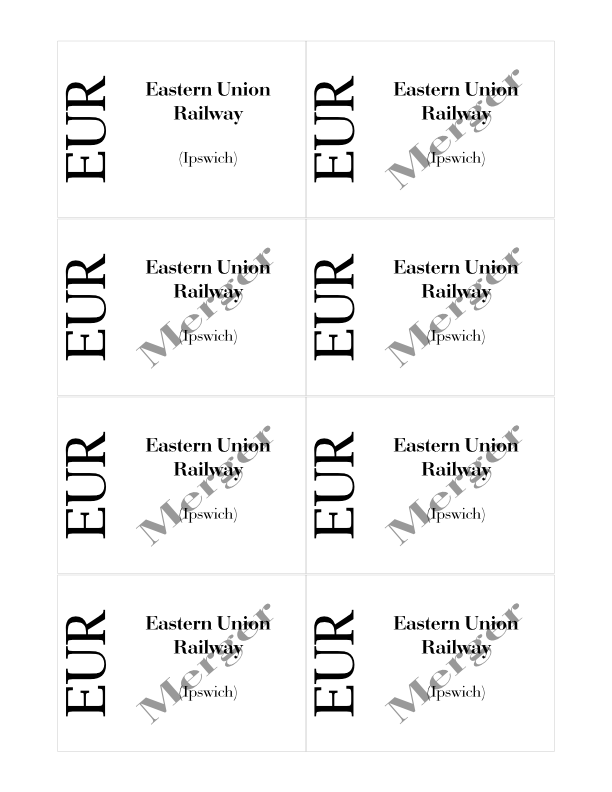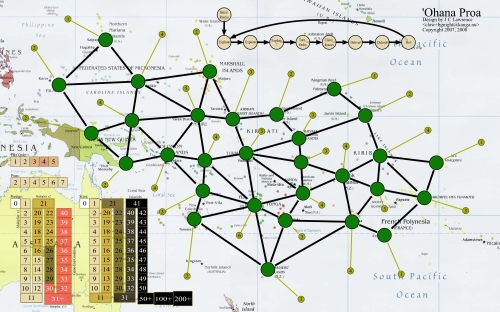[2008-10-01/11:30] <clearclaw> I am building a bureaucratic force of extraordinary magnitude – http://www.boardgamegeek.com/article/2692463
[2008-10-01/11:31] <cocadieta> Neat, that was the game I played last night.
[2008-10-01/11:32] <cocadieta> For my last action I got to choose whether J R or Dave won.
[2008-10-01/11:33] <clearclaw> Hehn.
[2008-10-01/11:33] <clearclaw> I’d love to talk more but have to run. Back in ~45 probably.
[2008-10-01/11:39] <sedjtroll> So does Confucius often come down to such a kingmaker decision?
[2008-10-01/11:39] <cocadieta> It’s easy for it to.
[2008-10-01/11:40] <cocadieta> This is the first time I’ve seen it quite so clearly, but there was nothing terribly special about this game (other than three new players).
[2008-10-01/11:40] <sedjtroll> Oh. lame
[2008-10-01/11:46] <clearclaw> No, in this case that’s a positive quality
[2008-10-01/11:46] <clearclaw> The entire game is about creating tied situations.
[2008-10-01/11:46] <clearclaw> A kingmaker position is merely an instance of a tied situation.
[2008-10-01/11:47] <cocadieta> That’s how I looked at it. Two players won. That I had to ‘pick’ between them isn’t really important.
[2008-10-01/11:47] <clearclaw> Quite.
[2008-10-01/11:48] <cocadieta> The money isn’t too lucky but the bonus cards are.
[2008-10-01/11:48] <clearclaw> If there had been an incentive created by one of the players for you to go one way or ther other it would have been more interesting. This was just the degenerate case.
[2008-10-01/11:48] <clearclaw> Aye, the Emperor’s reward cards are swingy
[2008-10-01/11:48] <clearclaw> What complaints I have centre there.
[2008-10-01/11:49] <cocadieta> In last night’s game, I had a 30% chance of pulling a card worth 8 points to me (!!!)
[2008-10-01/11:49] <clearclaw> They’re hard to remove cleanly
[2008-10-01/11:49] <clearclaw> Wowzers.
[2008-10-01/11:49] <clearclaw> I’ve not looked hard at the distribution.
[2008-10-01/11:50] <cocadieta> The situation was: Hoju was about to resolve and I saw my position there go from a very safe second to an impossible-to-fix third.
[2008-10-01/11:51] <cocadieta> I ran my boats out to Africa and picked up a bonus card. If it was the Hoju bribery card or one of the two wilds, I could have knocked someone out and gone back to second. The VPs in the region were 8/8; I had two markers and a gift invested in the region.
[2008-10-01/11:51] <cocadieta> Brutal, but then again, them’s the breaks.
[2008-10-01/11:52] <clearclaw> Yow. Those forced minister cards are (overly?) brutal.
[2008-10-01/11:52] <clearclaw> They haven’t determined one of our games yet but they’ve come close.
[2008-10-01/11:52] <clearclaw> They make the navies far more viable than they appear at first glance,.
[2008-10-01/11:53] <cocadieta> I’m happy to accept them as swingy, and also I realize I have to revise my line that the bonus cards are worth about a point or two each.
[2008-10-01/11:53] <clearclaw> I think I’d prefer the game without the Emperor’s Reward cards, I see them as something to be polished out, but they are tightly married to the rest of the system.
[2008-10-01/11:58] <cocadieta> I like them though I know why you aren’t crazy about them. I wonder what it would do to the game to keep them face up and let players pick them.
[2008-10-01/11:58] <clearclaw> Or perhaps a narrow draught pool. THAT would be interesting!
[2008-10-01/11:58] <clearclaw> (and face up when drawn)
[2008-10-01/11:59] <clearclaw> (unless drawn blind?)
[2008-10-01/11:59] <cocadieta> There are always two cards available, that kind of thing?
[2008-10-01/11:59] <clearclaw> Yes.
[2008-10-01/12:00] <clearclaw> Aside: In our last game we had a player do 15 fleets at once.
[2008-10-01/12:00] <cocadieta> I like the sound of that. I don’t mind the chaos and the huge swinginess of the cards–I think that’s perfectly in line with the insane swings that e.g. the students can have on the game–but the blind draws and secret holdings are maybe a little much.
[2008-10-01/12:00] <cocadieta> That’s great!
[2008-10-01/12:01] <clearclaw> Aye. I do like the draught pool idea.
[2008-10-01/12:01] <clearclaw> I’ll try and write that up later as a proposal.
[2008-10-01/12:01] * clearclaw will probably dig lightly at Faidutti.
[2008-10-01/12:01] <cocadieta> Ha, ha
[2008-10-01/12:02] <clearclaw> Undoubtedly he likes the chaos. His style.
[2008-10-01/12:02] <cocadieta> Yeah, absolutely.
[2008-10-01/12:02] <clearclaw> This variant will lead directly away from that quality.
[2008-10-01/12:02] <clearclaw> I expect it will be accused of attempting to turn the game into something that it isn’t.
[2008-10-01/12:25] <cocadieta> J C, will your ego be bruised if I type up that variant as part of a reply to J R’s report?
[2008-10-01/12:26] <sedjtroll> I think JC’s ego is impervious
[2008-10-01/12:51] <clearclaw> I am currently in the process of putting that variant into an OtherWise post which will be cross-posted to BGG as a variant proposal
[2008-10-01/12:53] <clearclaw> Outside of that yes, my ego will not be bruised.
[2008-10-01/12:53] <cocadieta> I mentioned the variant in J R’s report. If you’d like I’d be happy to credit it to you as well, it just didn’t seem worth it.
[2008-10-01/12:53] <clearclaw> I’m not overly worried.
[2008-10-01/12:53] <clearclaw> (or underly)
I really love this game, and I think navigating its insane chaos is a very unusual challenge. I agree that the luck of the money draw really just means players need to be prepared to spend only a little or a lot on any given turn, and there are plenty of cheap as well as expensive things to buy. Poor planning will make anyone susceptible to bad card draws, but a versatile board position and gift pool should ensure that you always have something to do.
After last night’s game, my new feeling is that the bonus cards are a little too lucky. Chaos is the order of the day here, but it’s basically ‘fair’ chaos: I have, at every moment, a very good overview of everyone’s position and incentives (to borrow a word–hi, J C). That is, except for bonus cards, which are hugely variable in worth to every player, randomly drawn, and secretly held. I love the swinginess of the cards, I love the chaos they create, but I don’t appreciate their random draw.
Proposed variant: At the beginning of the game, shuffle the cards and keep them face down. Flip over the top two (three?) cards; when a player wins a bonus card, he selects one, keeps it face up in front of him, and flips a new card to replace it. I feel like this would preserve the crazy chaos of the game but continue to allow each player to have a ‘complete’ picture, letting him make more informed decisions. I also don’t think it adds much, if any, complexity to the game.
Having thought about it a bit more since that posting, I like the conclusions and extension above. I have yet to play with this variant. I’ll try to get it on the table today.


